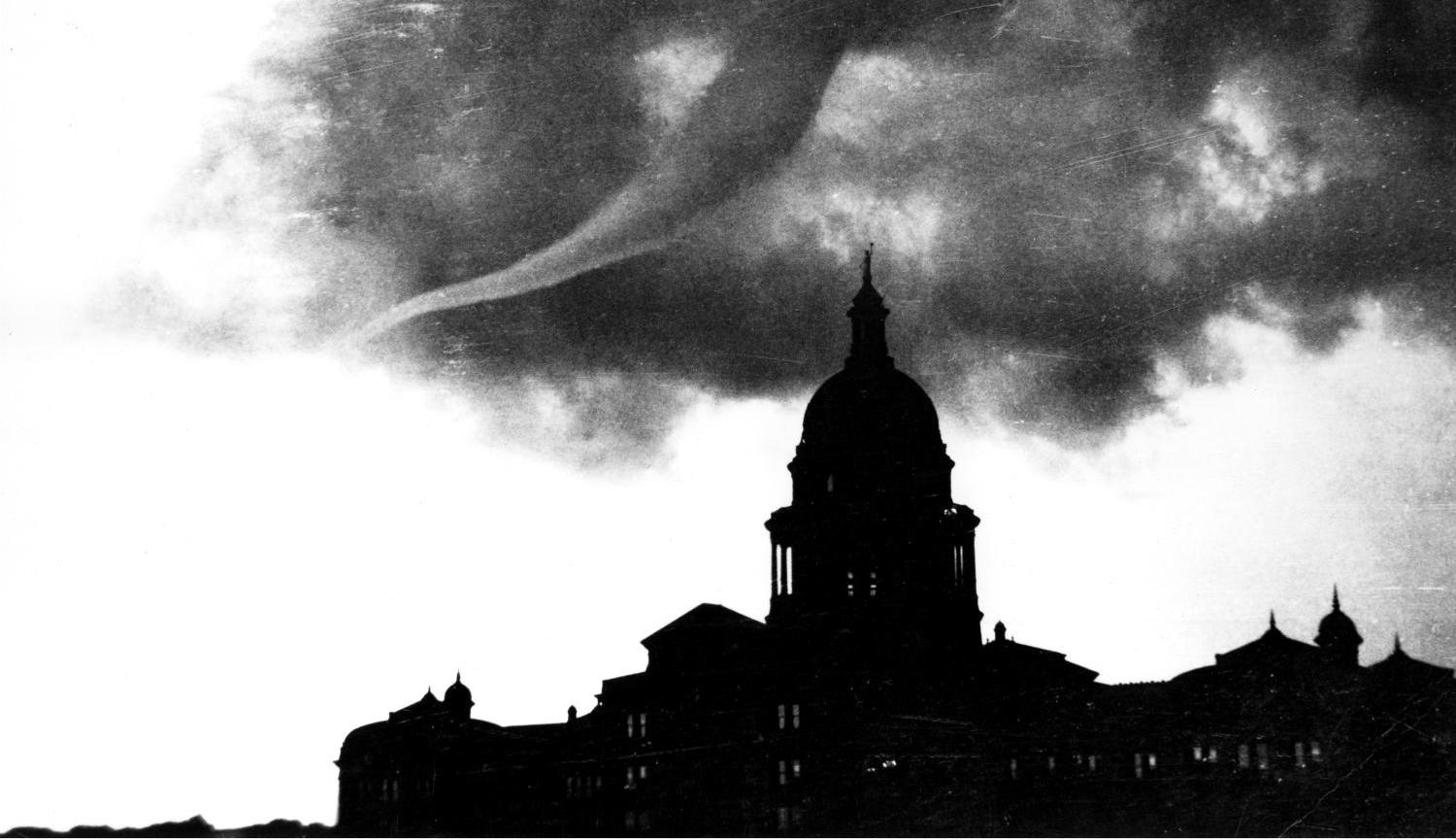ustxtxb_obs_1984_10_12_50_00004-00000_000.pdf
Page 20
campaign that, instead of talking about arms reduction or nuclear nightmares, talks about “peace through strength,” all the while engaged in the build-up of nuclear arms, contributing to economic weakness at home and a more and more unstable peace abroad. Beyond that, it is a campaign that enters those areas most people reserve for their moral lives, their deepest beliefs and most intense feelings, and stirs up those feelings, confuses ideas, and exploits what many consider the best in themselves. In appealing to “traditional family values” or religious beliefs, the Reagan campaign enters a field in which many people feel they exercise some degree of control over their own lives, despite all the other concessions they may have to make in the workplace or in relation to their government or to society at large. Into this personal arena Reagan strides and distorts the issues in order to make people feel their autonomy is threatened, not by the government that has imposed itself, but by those who would not let the government intervene in personal matters. Those who oppose government interference and the imposition of prayer in schools and favor the separation of church and state and freedom of belief are tagged enemies of religion. Meanwhile, the Reagan forces wave the banner of “traditional family values.” At the same time, they not only favor economic policies that cause great family hardship, but they also epitomize a consciousness that flies in the face of perhaps the single most traditional family value the value that says, if they’re family, you take them in. When Reagan asks if you’re better off than you were four years ago, the thing that must be considered is whether the whole family the entire society is better off. But when Reagan asks that question, he does not want you to think about society, he wants you to think about yourself. It’s the same appeal Phil Gramm makes when he tells his audience they shouldn’t be pulling the wagon for those who cannot pull their own. What else is “family” all about? Violent Acts THE SAME CAN BE seen in the abortion issue. The Reagan campaign and some of its supporters have tried to paint those who favor the freedom of individuals to control the most intimate aspects of their own lives as forces of violence, opposed to individual liberties. Yet it is the Reagan administration that hopes to impose government in this most personal arena. To do so, it must confuse the issue. While the abortion debate centers on a determination of when independent personhood begins, the Reagan rhetoric muddles this debate by treating the fetus as a person from conception and, ironically, by eliminating the independence of the woman at this point. It is worse than ironic that this same administration is so concerned about the welfare of the fetus but cannot be bothered by the welfare of the baby, having cut funds for child nutrition and health programs, as well as prenatal health care. The matter is compounded by the violence of some members of anti-choice organizations. In the past six weeks, four abortion clinics in Houston have been firebombed, forcing two to close for over a month. Clinics in Dallas and around the state have received threats. While Bill Price, president of the Greater Dallas Right to Life organization, denies any connection to the bombings, he did tell the Dallas Morning News that his forces are “going to have to develop some meanness a godly anger like Jesus when he went into the temple.” Bishop Thomas Tschoepe of the Dallas Catholic Diocese told the Dallas Times Herald that he favored physically restraining women entering clinics. Linda Sprague of the North Central Women’s Center in Dallas told the Observer that protestors around her clinic have followed women into the clinic or tried to restrain them from entering. Despite continuing threats, the police chiefs of Dallas and Houston have decreed that off-duty police cannot work as clinic security because, “by being here, they are seen to be taking sides,” said Evicel Ortega of the West Loop Clinic in Houston, one of those recently firebombed. Violence to prevent alleged violence. An attempt to restrict the freedom of personal choice in the name of freedom. In attempting to enter the arena of personal values, the Reagan administration is hoping to cloud the arena of political debate. In attempting to muddy the waters of clear thought, the Reagan administration hopes to convince the middle class to vote against its own best interests and the interests of this country as a whole. G. R. Chicago THE FIRST TIME I realized that Ronald Reagan went in for confusing fantasy with fact was in 1968, when he made his first run at the presidency. Law and order was his favorite theme in those days of civil rights and anti. war demonstrations, and while making a speech in one of the Western states tie cited an alarming statistic. Mike Royko is a columnist for the Chicago Tribune. He said that people were becoming so lawless that during one recent month, eight cops had been killed in Chicago alone. When the story came over the news wire, I phoned his public relations man and asked him about all those dead Chicago cops. The public relations man confirmed Reagan had used those alarming figures, but he said he didn’t have the faintest idea where they came from. So I wrote about Reagan’s speech and pointed out that Reagan’s figures were whacky. No cops had been killed in Chicago in several months. There had been only one or two killed all year. And I suggested that maybe he was confusing television action shows with news shows. Some time after that, I received a letter from Reagan in which he denied ever talking about eight cops having been killed in Chicago. And that was still another fantasy, since the wire service reporters heard him, and his own press secretary had confirmed it. At the time, I thought maybe he’d just misstated statistics; that he meant to say that they had been killed over a threeor four-year period, which would have been more accurate, if less dramatic, than a month. But as Reagan’s flair for storytelling has shown, that wasn’t the case. Reagan just doesn’t believe in letting the facts stand in the way of a good story. Reporters who covered his campaign in 1980 were amazed at how easily he The President’s Tall Tales By Mike Royko 4 OCTOBER 12, 1984


